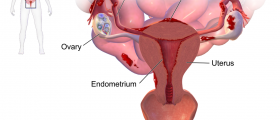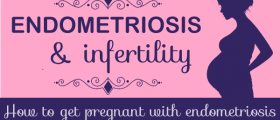
Endometriosis is not an uncommon condition, with over five and a half million women affected in North America alone. Endometriosis comes in different variations, ranging from mild to severe. Those women who are affected by it are certainly more likely to encounter fertility problems than those who are not. However, many women with endometriosis do get pregnant naturally, often without any problems.
Around 20 percent in other words, 20 out of every 100 women with "endo" will not be able to get pregnant naturally. That does mean, on the upside, that the overwhelming majority of those with endometriosis will be able to conceive naturally, without medical intervention.
Unfortunately, endometriosis does make a miscarriage more likely. Women who have mild endometriosis should consult with their doctor before trying to conceive, but will probably get the "green light" to try naturally without any specific measures against endometriosis.
Clomid can sometimes be of help to those couples affected by endometriosis who have not been able to conceive, and surgery to remove the tissue build up and adhesions can greatly increase a woman's chances of conceiving, especially within the first year following such surgery. In combination with surgery, medications like Lupron may improve your chances of getting pregnant. If you would like to know more about this possibility, make sure to discuss it with your doctor.
















Your thoughts on this
Loading...